Some government delegates are already campaigning for yes in the upcoming constitutional referendum. This is not the moment, says the National Independent Electoral Commission –CENI, which said it does not have the power to stop the government from campaigning for the referendum.
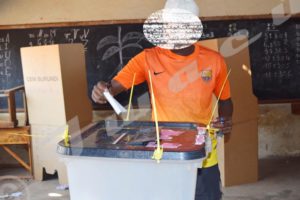
The population called to vote for the revision of the Constitution.
“The campaign for yes or no to the revision of the Constitution is not yet launched,” warns the National Independent Electoral Commission, CENI. Some government officials have ignored this warning.
In the wake of their campaigns to explain the draft Constitution to be submitted to the referendum, they go straight ahead and call to vote “for” its revision.
Recent cases include the Burundian Ombudsman in Mukaza commune and the Assistant to the Minister of the Interior in Rumonge. They clearly called on the population to “vote yes” to the draft amendment to the Constitution.
In addition, several arrests continue inside the country. Most of those who are arrested are opponents of this revision. The reasons given by the administration and the police for the arrests are the organization of “clandestine meetings and inciting the population to vote against the constitutional revision.”
The opposition coalition, CNARED as well as the civil society organizations campaign against the proposed referendum. They say they fear a civil war and call for a boycott.
“An early campaign”
The CENI spokesperson Prosper Ntahogwamiye speaks of an early campaigning. He assures that the time to campaign for or against the amendment to the Constitution is set by the law. It is 14 days before the day of the referendum. “This moment has not come yet. Prosper Ntahogwamiye does not deny the allegations that some government officials are campaigning for the revision of the Constitution. For him, the national electoral commission is not competent to control the action of the government. The CENI would therefore be unable to rule on these shortcomings. “There are other bodies to rule on this kind of cases.”
Only some provisions contained in the electoral code do not give him reason. They provide ample proof that the CENI is competent to manage the excesses in the case of elections. Sanctions for abuse are mentioned. Analysts of the situation have already started to talk about a national commission not “as independent as that.”
Reactions
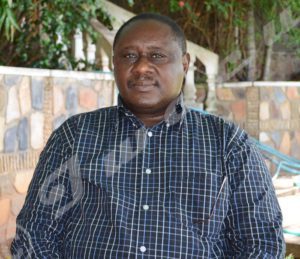 CNARED calls for boycott
CNARED calls for boycott
The opposition coalition in exile calls for a boycott of this referendum: “The result of this force will not engage it in any way. The President of CNARED, speaks of the risk of a civil war. By turning its back on the dialogue, Bujumbura legitimizes the option of armed groups. Jean Minani asks the Arusha Accord’s guarantors to take drastic sanctions against Bujumbura. To block the road to the referendum, Jean Minani calls for the constitution of a Citizen Forum that will bring together CNARED, civil society, the diaspora and all the forces of the Burundian nation.
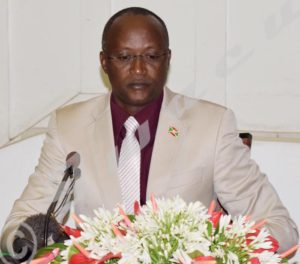 Gaston Sindimwo: “Is there a better dialogue than the referendum?”
Gaston Sindimwo: “Is there a better dialogue than the referendum?”
The First Deputy-President of the Republic will announce very soon an explanatory campaign of the provisions likely to be an amendment for political parties. He sweeps away the “Teshwa ute” campaign and the CNARED Citizen Forum. He talks about puppet organizations that cannot stop the country from moving forward. The First Deputy President calls the population to serenity. He promises severity against excesses like those of 2015. To those who say that the referendum undermines the dialogue,
Gaston Sindimwo says: “Is there a better dialogue than the referendum through which every Burundian will express themselves?”
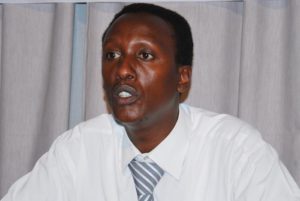 “Teshwa ute” campaign: “Risk of civil war and coup”
“Teshwa ute” campaign: “Risk of civil war and coup”
23 civil society organizations have launched a citizen campaign called ‘Teshwa ute’. They call for resistance against the revision of the Constitution which violates the existing Constitution and hinders any peaceful solution through dialogue. Vital Nshimirimana, one of these activists, initiator of this campaign appeals to the international community to help stop the process. He speaks of the risk of civil war and coup d’état. He calls for citizen participation in active non-violent actions aimed at obstructing the organization of that referendum.
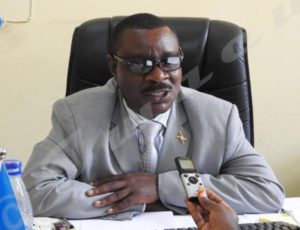 Ntahiraja: “The government has the right to call for “yes”
Ntahiraja: “The government has the right to call for “yes”
For the Assistant to the Minister of the Interior, other countries have no say in matters of national sovereignty.
As for the draft constitution that will be voted through referendum, Ntahiraja believes that the government has the right to call people to vote yes on a project it has conceived. “If you have initiated a project, can you tell someone to vote no when you have prepared it?” Ntahiraja reassured, however, that the referendum vote would be secret and indicates that at this time the population can vote for or against the amendment to the Constitution.
Enlightenment by Donatien Niyonsaba
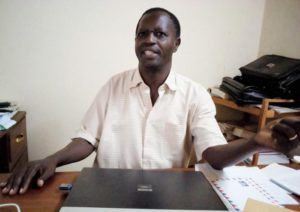 This electoral expert of the United Nations enlightens us on the electoral campaign, its duration, the competencies of the CENI, the sanctions provided by the law in case of law violation.
This electoral expert of the United Nations enlightens us on the electoral campaign, its duration, the competencies of the CENI, the sanctions provided by the law in case of law violation.
What about the electoral campaign?
The first paragraph of Article 25 of the Electoral Code, defines the electoral campaign. This is the set of propaganda operations preceding an election or referendum to get voters to support candidates competing or to decide on an issue. For this case, it is the referendum. So, people are asked to comment on an issue.
What’s its duration?
The second paragraph of Article 25 states that the election campaign is opened by a presidential decree, 16th day before the polling day, and ends 48 hours before the elections. Those who are campaigning for or against the revision break the law.
Is the CENI competent enough to ensure that the elections run smoothly?
Article 236 of the Electoral Code states that the office of the National Independent Electoral Commission is competent to enforce sanctions when it comes to elections organized at the national level (referendum, presidential and legislative elections). So it is up to the CENI to apply sanctions if there is fault.
What are the sanctions provided for by the electoral code?
Article 219 of the Electoral Code stipulates that a fine of between BIF 800 thousand to BIF 4 million shall be imposed on any electoral propaganda outside the legal duration of the electoral campaign. This article is clear and precise.
How is the referral done?
Article 237 of the same electoral code defines the referral modes. CENI detects cases of law violations and decides to study the matter. The article also contains a provision for a petition from any person or organization that has the capacity to sue and with a direct interest in the current elections. In this case, the petition is examined and all cases cease. This means that as soon as the petition is submitted, the National Independent Electoral Commission must examine it as a matter of urgency.
What happens if the CENI does not enforce the law?
If the CENI allows the violation of the electoral code by the government, the other partners will believe that everything is allowed and this will give rise to anarchy. There are people who can err through ignorance even if no one is supposed to ignore the law. The best solution would be for the CENI to convene a meeting for an update for both the government and political parties in order to differentiate the explanatory campaign of the amendments to the Constitution from the propaganda period for yes or no.
Written by Agnès Ndirubusa and translated by Pierre Emmanuel Ngendakumana

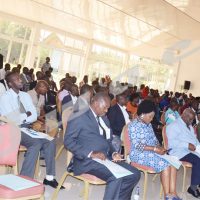
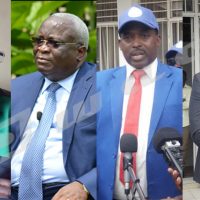
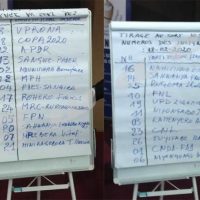
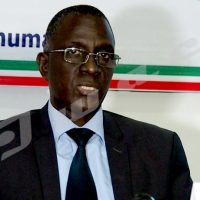














 IWACU Open Data
IWACU Open Data

